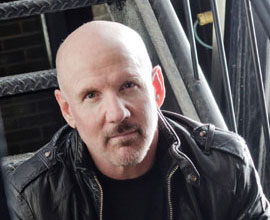A coauthor shares some advice he gleaned from working with the global bestseller
I’ve been lucky enough to write with James Patterson for the past two and a half years. Before that I’d written eight novels, including Rogue, been published in multiple languages, sold books into movies, and been nominated for and won various awards. In short, I thought I knew what I was doing when it came to commercial fiction. Working with Patterson, however, I discovered quickly that I didn’t.
I’d always worked organically, starting a tale to see where it took me and then figuring out an outline if the story showed promise. My coauthor forced me to think logically and deeply through every scene up front, long before we even thought about writing
During the eight weeks it took us to craft the outline of Private Berlin, for example, Patterson was constantly pushing the envelope, from the premise to the characters, from the action to the setting. In conversations that took place on a weekly basis, he bluntly criticized my initial efforts, made me want to be better, and in so doing gave me a master class in commercial fiction.
What I’ve learned from the global bestselling author could fill a book, but here are some of the lessons that have changed my writing life.
We are in the business of entertainment, not edification or enlightenment,” Patterson told me very early in our working relationship. “We are interested in giving the reader an intelligent thrill ride populated by outsized people we feel for.” Characters, especially heroes and villains, were to be thought about carefully. They had to be human, above all, and then we had to subject them to terrible ordeals that took them to the brink of their capacities and beyond.
“To do that, our villains must be worthy opponents,” he lectured me repeatedly. “The reader has to believe that the bad guy is fascinating enough, clever enough, and bad enough to defeat our hero.” Research was the basis of great villains. It was also the basis of hero, plot, and believability. Patterson is extremely well read, and his statements about writing are often peppered with references to specific authors, books, or films. In one villainous discussion he urged me to read the poetry of Louise Glück to get a better feel for a lacerating voice. In another we discussed the novel Perfume.

No comments:
Post a Comment